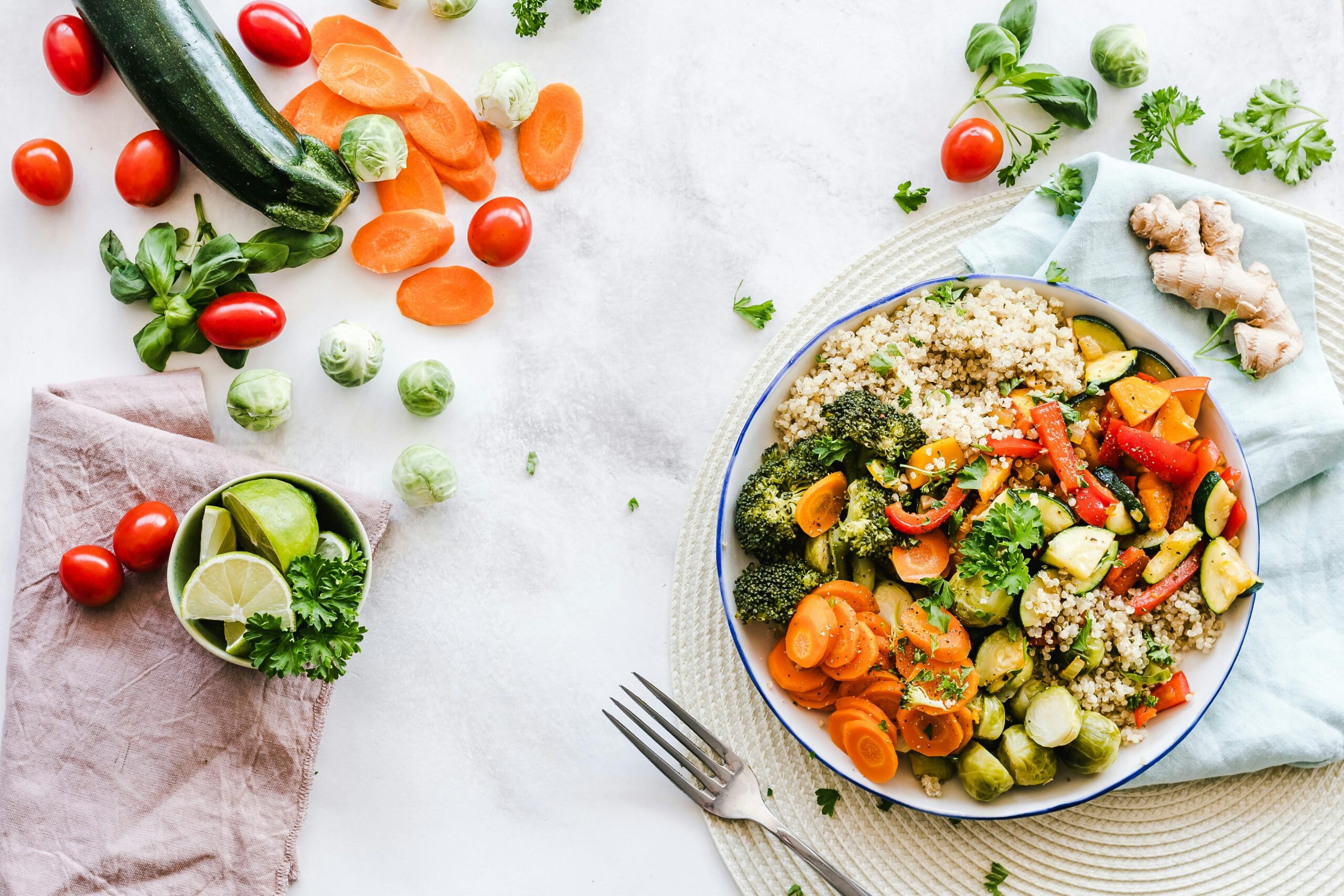Power of Nutrition in Cancer Prevention plays a fundamental role in cancer prevention, treatment, and survivorship, influencing various aspects of the disease, including cancer development, progression, and response to treatment. While nutrition alone cannot cure cancer, evidence suggests that adopting a healthy diet rich in fruits, vegetables, whole grains, and lean proteins can help reduce cancer risk, support immune function, and improve overall health. In this article, we’ll explore the profound impact of nutrition on cancer prevention and treatment and provide practical guidance for incorporating healthy eating habits into daily life.
The Link Between Nutrition and Cancer Risk:
Research suggests that dietary factors play a significant role in modulating cancer risk, with certain foods and dietary patterns associated with either an increased or decreased risk of developing cancer.
Key dietary factors that may influence cancer risk include:
1. Plant-Based Foods: Diets rich in fruits, vegetables, whole grains, legumes, and nuts are associated with a reduced risk of several types of cancer, including colorectal, breast, prostate, and lung cancer. These foods are rich in vitamins, minerals, antioxidants, and phytochemicals that help protect cells from damage, reduce inflammation, and support immune function.
2. Healthy Fats: Consuming healthy fats, such as those found in olive oil, fatty fish, avocados, and nuts, may help lower the risk of certain cancers and improve overall health. Omega-3 fatty acids, in particular, have anti-inflammatory properties and may reduce the risk of cancer progression and recurrence.
3. Limiting Processed Foods and Sugary Beverages: Diets high in processed meats, sugary snacks, and sugar-sweetened beverages are associated with an increased risk of obesity, type 2 diabetes, and certain cancers, including colorectal and pancreatic cancer. Minimising intake of these foods and beverages can help reduce cancer risk and promote overall health.
4. Alcohol Consumption: Excessive alcohol consumption is a known risk factor for several types of cancer, including breast, liver, colorectal, and esophageal cancer. Limiting alcohol intake to moderate levels or abstaining from alcohol altogether can help lower cancer risk and improve health outcomes.Nutrition Strategies During Cancer Treatment:For individuals undergoing cancer treatment, maintaining proper nutrition is essential for supporting overall health, managing treatment side effects, and optimising treatment outcomes.
Nutrition strategies during cancer treatment may include:
1. Adequate Protein Intake: Ensuring adequate protein intake is important for supporting immune function, preserving muscle mass, and promoting wound healing during cancer treatment. Lean sources of protein, such as poultry, fish, tofu, beans, and dairy products, can help meet protein needs.
2. Managing Treatment Side Effects: Certain cancer treatments, such as chemotherapy, radiation therapy, and surgery, can cause side effects that affect appetite, taste, digestion, and nutritional status. Working with a registered dietitian or nutritionist can help individuals manage treatment-related side effects and maintain adequate nutrition during cancer treatment.
3. Hydration: Staying hydrated is essential for supporting overall health and preventing dehydration, especially during cancer treatment. Encourage individuals to drink plenty of fluids, such as water, herbal teas, and electrolyte-rich beverages, and avoid sugary drinks and excessive caffeine.
4. Nutrient-Dense Foods: Emphasise the importance of consuming nutrient-dense foods that provide essential vitamins, minerals, and antioxidants to support immune function and overall health. Encourage a varied diet that includes a variety of fruits, vegetables, whole grains, lean proteins, and healthy fats.
5. Individualised Nutrition Plans: Recognise that nutrition needs may vary depending on the type of cancer, treatment regimen, and individual preferences and tolerances. Encourage individuals to work with a healthcare team, including a registered dietitian or nutritionist, to develop personalised nutrition plans tailored to their unique needs and goals.
Power of Nutrition in Cancer Prevention plays a central role in cancer prevention, treatment, and survivorship, offering powerful opportunities for reducing cancer risk, supporting overall health, and optimising treatment outcomes. By harnessing the power of nutrition through healthy eating habits, individuals can take proactive steps towards reducing their cancer risk, supporting their bodies during treatment, and enhancing their quality of life throughout the cancer journey.
By cancer-research.org team.




